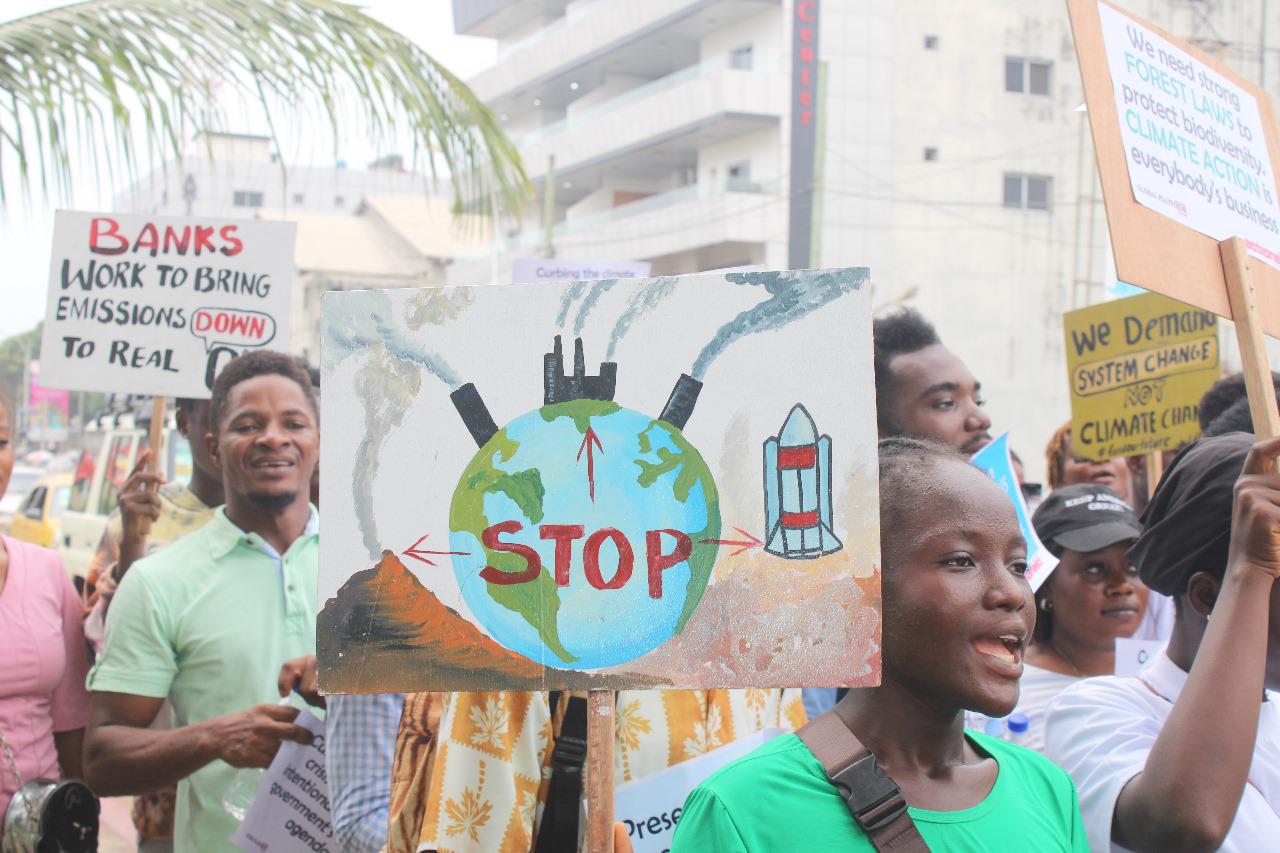Comment: Commercial banks are financing a huge amount of fossil-fuel and industrial agriculture activities in the Global South – they must turn off the tap
Teresa Anderson is global lead on climate justice for ActionAid International.
Last month, from Bangladesh to Kenya to Washington DC, over 40,000 activists in nearly 20 countries hit the streets calling on banks, governments and financial institutions to “#FixTheFinance” pushing the planet to the brink.
It’s clear that we can’t address the climate crisis unless we fix the finance flows that are failing the planet. When we know that we have hardly any time left to avoid runaway climate breakdown, it’s absurd that so much of the world’s money is still being poured into fuelling climate change, while barely any is going to the solutions.
Let’s face it – the climate crisis is really about money, and our choices to use it and make it in really stupid ways.
G7 offers tepid response to appeal for “bolder” climate action
Many of the world’s most powerful private banks are holding their Annual General Meetings over the next weeks. Banks like Barclays, HSBC and Citibank are pumping billions into fossil fuel expansion, knowing full well that their decisions directly lead to climate chaos and devastating local pollution, particularly for communities in Africa, Asia and Latin America. At their AGMs they will undoubtedly celebrate their profits, self-congratulate on miniscule policy tweaks, and try to ignore the clamour of climate criticism.
ActionAid research last year showed that these banks are financing an astonishing amount of fossil-fuel and industrial agriculture activities in the Global South, causing land grabs, deforestation, water and soil pollution and loss of livelihoods – all compounding the injustice to communities also getting routinely hit by droughts, floods and cyclones thanks to climate change.
HSBC, for example, is the largest European financer of fossil fuels and agribusiness in the Global South. Barclays is the largest European bank financier to fossil fuels around the world. And Citibank is the largest US financier of fossil fuels in the Global South. The banks have so much power, and so much culpability, much more than most people realise. But they want us to forget the fact that they are working hand in hand with, and profiting from, the industries that are wrecking the planet.
The banks can actually turn off the taps. They can end the finance flows that are fuelling the climate crisis. So to avert catastrophic climate change, the fossil-financing banks must start saying no to the corporations destroying the planet.
But it’s not only private finance that is flawed – public funds are being misused as well. Governments are using far more of their public funds to provide subsidies or tax breaks for fossil fuels and industrial agriculture corporations, than they are for climate action. This is ridiculous – it’s hurting the planet, and its hurting people.
Public funds instead need to be redirected towards just transitions that address climate change and inequality.
There is growing appetite for climate action. But this just isn’t yet matched by willingness to pay for it. Or even to stop profiting from climate destruction.
COP29 finance goal
This year’s COP29 climate talks will be a critical test of rich countries’ commitment to securing a liveable planet. The world’s poorest countries are already bearing the spiralling costs of a warming planet. So far they have only received begrudging, tokenistic pennies from the rich polluting countries to help them cope. The offer of loans instead of grants in the name of climate finance is just rubbing salt into the wounds.
If we want to unleash climate action on a scale to save the planet, rich countries at COP29 will need to agree a far more ambitious new climate finance goal based on grants, not loans.
Because if we want to save our planet, we will actually need to cover the costs.
Tensions rise over who will contribute to new climate finance goal
Last month the International Monetary Fund and the World Bank held their Spring meetings in Washington DC. These institutions are po
Read More







Never miss a story. Join us on social.